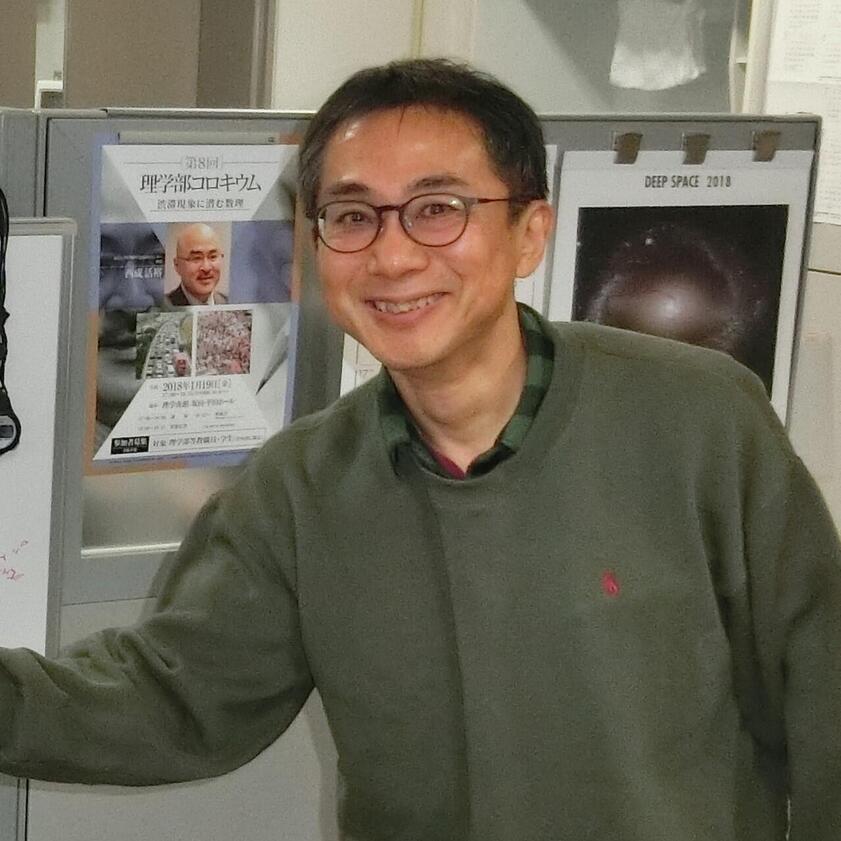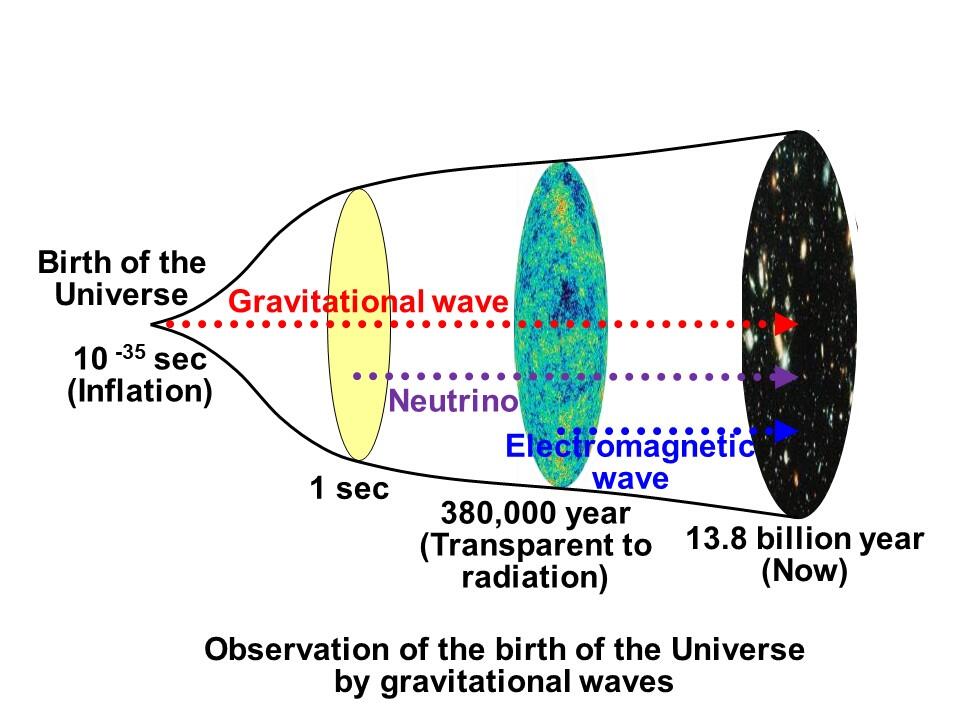Professor Ryuichiro Higashinaka

Researchers'
Professor
Seiji Kawamura
Graduate School of Science
I want to live a "free" life, and I want others to do the same. In fact, when my children turned 20, I told them, "Do not be afraid to do what you want and how you want to do it, regardless of your parents' wishes." When you put yourself in a "free" environment, the things you really want to do bubble up from deep within, and I use that as a guide for my life. By the way, I love Nagoya University because of its freedom.
We conduct experiments to detect gravitational waves. In particular, we are conducting research to detect gravitational waves that would have been generated during the inflationary period, which is thought to have occurred just after the birth of the universe (around 10–35 sec). Specifically, for the space gravitational wave antenna DECIGO (DECi-hertz Interferometer Gravitational wave Observatory), we are developing a technique to break the standard quantum limit defined by the uncertainty principle using new methods such as quantum locking. We will also try to develop a completely new method of gravitational wave detection on the ground, which will enable us to detect gravitational waves from inflation.

We can see whether inflation really existed, and if so, what it was like. Because electromagnetic waves could not travel directly in a straight line until 380,000 years after the birth of the universe, the universe before that time cannot be directly observed. Gravitational waves are the only way to directly observe the universe immediately after its birth. Since gravitational wave observation is more like "hearing" than "seeing," and this research will enable us to "hear" the birth of the universe.
In the fifth grade, I realized the universe was the most powerful entity that encompassed everything, including myself, and came to rely on it for my salvation. When I was in the second year of a master's course at graduate school, I was conducting research on materials science. However, when everyone around me started looking for a job, I remembered my passion for space in elementary school, and decided to switch from materials science to space research. In my new laboratory, I started Japan's first gravitational wave detection experiment using a laser interferometer. After that, I conducted a sensitivity improvement experiment of the LIGO (Laser Interferometer Gravitational-Wave Observatory) prototype at the California Institute of Technology, and then returned to Japan to construct a ground-based gravitational wave detection system. At the same time, I started research on the space gravitational wave antenna DECIGO. Soon after, I realized that DECIGO could be used to observe the universe just after it was born, and I really wanted to make that happen.
It is a process. First, while jogging or in bed at night, I considered how to increase the sensitivity of the detector and came up with an interesting idea. Second, when the idea did not work, I thought, "This guy is pretty good." Third, when I came up with the idea that would overcome that challenge: "Yes, yes, I got it!" (I repeated this again and again.) Last, a fun and happy moment for me is when I dive deeper into my challenge and sparks come off at a space no one has reached before.
I try to do only what I want to do, so there is no need to be discouraged. If I feel I am losing heart, it means this is not what I really want to do, and I walk away without hesitation.
I hardly listened to my classes since I was in the fifth grade. It is not that I did not listen because I understood, but rather because I could not understand. During class, I mainly thought about whether I should do my favorite math, write a novel, or what to have for dinner. Because of this, I was harshly scolded by most of my teachers.
I really want to hear the "birth of the universe." When I hear this sound, I want to say to the universe, "Thank you so much for coming into existence."
Name: Seiji Kawamura
Department: Graduate School of Science
Title: Professor
Career history and hobbies:
After completing the doctoral course at the Graduate School of Science, the University of Tokyo in 1989, he worked as a Member of Professional Staff at the California Institute of Technology, an Associate Professor at the National Astronomical Observatory of Japan, and a Professor at the Institute for Cosmic Ray Research at the University of Tokyo before assuming his current position in 2017. His hobbies include playing badminton and jogging while thinking about physics. He is the author of "What are Gravitational Waves" (Gentosha) and "Frontiers of Gravitational Wave Physics" (Kyoritsu Shuppan).